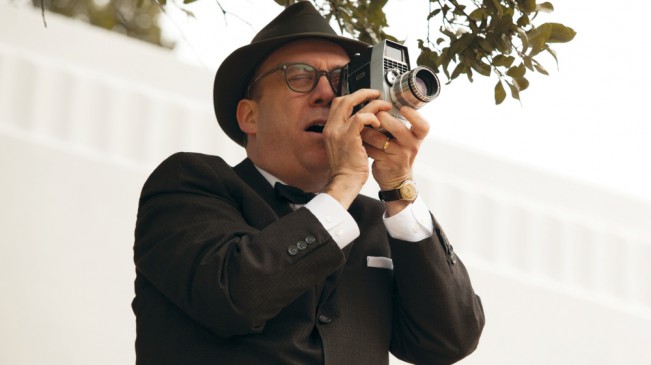By Jake Howell jake.howell@utoronto.ca
The Torontonian Reviews PARKLAND
While much has changed since November 22, 1963, what hasn’t is the world’s fascination with the assassination that happened that day. Fifty years after the fact, we are given the underwhelming Parkland, Peter Landesman’s dramatization of side narratives that emerged after President John F. Kennedy was fatally shot. These mini-stories—perhaps better suited for a television series—include the hospital unit working at Parkland Memorial Hospital (to treat the bodies of both JFK and Lee Harvey Oswald), the life-changing footage captured by Abraham Zapruder, and the family Oswald left behind.
Written for the screen by Landesman (also making his directorial debut), the film features a curious cast of Zac Efron (Jim Carrico, a young doctor at Parkland Memorial), Paul Giamatti (Abraham Zapruder), James Badge Dale (Robert Oswald) and Jacki Weaver (Marguerite Oswald). None of these roles own the show, however, as they all support their individual arc. There are a large number of players—far too many to list—but only Giamatti’s Zapruder and Badge Dale’s Robert Oswald are worth paying attention to. Even then, their stories would likely be far more interesting in a written format, like Vincent Bugliosi’s “Four Days in November,” the book from which the film is adapted. The acting is acceptable, but the performance average suffers from a surprisingly ineffective Jackie Kennedy (Kat Steffens) and Efron’s dubious turn as a surgeon.
As is usually the case with lesser historical pictures, the most compelling sequences come not from the dramatization but from newscasts and archival footage that punctate the background of the chaos. While it’s hard to compete with a defeated Walter Cronkite announcing the death of the President on national television, Parkland‘s emotional heft comes almost entirely from images like that, and especially the Zapruder film, and Landesman adds little to their impact. Coasting from beat to beat (when will Oswald get shot? Oh, there it is), the film piggybacks off the assassination’s universal intrigue, hoping to squeeze tension from underwritten characters.
The film’s period setting also feels like an afterthought. The majority of the action is captured in cramped rooms and with a variety of angles (with the cuts and shaky close-ups you would expect from poor choreography), and there are only a handful of master shots throughout. Moments of clarity are a relief from the unintentional claustrophobia of Parkland, but there isn’t enough in the details for Landesman to really sell the early 1960s as anything other than when the tragedy happened. Set design? Forget it. For that reason alone, the film doesn’t work. But when you add a lagging script with contemporary gimmicks that add artificial drama, well… when the surgeons attempt CPR on President Kennedy, relentlessly trying to revive a man who won’t come back, you get the sense the film is attempting something similar.

















What may be just as interesting as the conspiracy theories about the JFK assassination is the backstory of the hospital where JFK died, Parkland Memorial Hospital. Parkland is not only the place where the President died, but also where his assassin, Lee Harvey Oswald, died and where Oswald’s assassin, Jack Ruby, died.
Just consider that doctor residents-in-training were the first care taker to receive both JFK and Oswald at Parkland while no licensed doctor was around. That’s what you get when trainees are there to do the work of licensed doctors.
Parkland has come under intense fire from government health care regulators recently and are on 7 straight years of federal probation for patient care lapses and billing fraud.
You can read about the back story about Parkland on the website, “The Parkland Orgy of Death.”
A shoddily written book gets a shoddily made “straight to DVD” movie. Sounds about right.